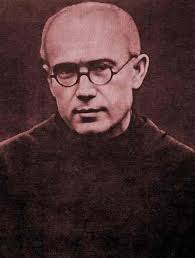
Today I was interested to read a blog article on the Churches Together in Britain and Ireland website. It was written by the Rt Revd Nick Baines, Bishop of Bradford, whilst on holiday, and you can read it here (or by following the CTBI tweet on our front page).
The image of cows nibbling grass, moving closer and closer to danger without realising it, is evocative and appropriate. So often, inhumanity stems not from a conscious decision to follow destructive values, but from the results of one tiny step after another down a particular path. Sometimes sin isn't a deliberate choice, but the consequence of a focus on one particular thing without paying heed to the broader context. Few people set out to be racist, for example - but racist attitudes and actions can creep in almost undiscerned. Apparently simple and innocent actions such as a firm Government line on immigration (and 'that' advertising van) can be interpreted in a way which both reinforces and develops racist behaviour. Few people set out to be oppressive, but maintaining order in a divided society can lead to an undue and increasing reliance on violence - as we see in Egypt at present.
The Holocaust is the twentieth century's defining image of inhumanity. It's a stark warning of the way in which entire nations can be led astray, step by step. Against that background of evil, there are thankfully many accounts of true humanity, one of which the Church remembers today.
Fr Maximilian Kolbe was a Polish Franciscan priest. As a child, he had a vision of the Virgin Mary:
'That night, I asked the Mother of God what was to become of me, a Child of Faith. Then she came to me holding two crowns, one white, the other red. She asked me if I was willing to accept either of these crowns. The white one meant that I should persevere in purity, and the red that I should become a martyr. I said that I would accept them both.'
During the Nazi occupation of Poland, Kolbe provided shelter to numerous Jewish and other refugees at his monastery. He was arrested in 1941 and incarcerated in Auschwitz.
A few months later, the escape of three men from the camp gave the authorities the pretext to execute ten of the other prisoners as an example. One of the men, a stranger, called out in distress 'My wife! My children!', and Fr Maximilian stepped forward to take his place. He was left in a bunker without food or water for two weeks, and spent the time in prayer, singing, and the encouragement of his fellow-prisoners - all of whom he outlived. He was then put to death by lethal injection on this day in 1941.
His story is a reminder that even in the face of widespread hopelessness and inhumanity, the truly human virtues can still prevail: virtues of self-giving love, generous compassion, courage, faith and faithfulness. And with that reminder comes the encouragement to us, who live in far easier circumstances, to hold fast to that which is good.
The image of cows nibbling grass, moving closer and closer to danger without realising it, is evocative and appropriate. So often, inhumanity stems not from a conscious decision to follow destructive values, but from the results of one tiny step after another down a particular path. Sometimes sin isn't a deliberate choice, but the consequence of a focus on one particular thing without paying heed to the broader context. Few people set out to be racist, for example - but racist attitudes and actions can creep in almost undiscerned. Apparently simple and innocent actions such as a firm Government line on immigration (and 'that' advertising van) can be interpreted in a way which both reinforces and develops racist behaviour. Few people set out to be oppressive, but maintaining order in a divided society can lead to an undue and increasing reliance on violence - as we see in Egypt at present.
The Holocaust is the twentieth century's defining image of inhumanity. It's a stark warning of the way in which entire nations can be led astray, step by step. Against that background of evil, there are thankfully many accounts of true humanity, one of which the Church remembers today.
Fr Maximilian Kolbe was a Polish Franciscan priest. As a child, he had a vision of the Virgin Mary:
'That night, I asked the Mother of God what was to become of me, a Child of Faith. Then she came to me holding two crowns, one white, the other red. She asked me if I was willing to accept either of these crowns. The white one meant that I should persevere in purity, and the red that I should become a martyr. I said that I would accept them both.'
During the Nazi occupation of Poland, Kolbe provided shelter to numerous Jewish and other refugees at his monastery. He was arrested in 1941 and incarcerated in Auschwitz.
A few months later, the escape of three men from the camp gave the authorities the pretext to execute ten of the other prisoners as an example. One of the men, a stranger, called out in distress 'My wife! My children!', and Fr Maximilian stepped forward to take his place. He was left in a bunker without food or water for two weeks, and spent the time in prayer, singing, and the encouragement of his fellow-prisoners - all of whom he outlived. He was then put to death by lethal injection on this day in 1941.
His story is a reminder that even in the face of widespread hopelessness and inhumanity, the truly human virtues can still prevail: virtues of self-giving love, generous compassion, courage, faith and faithfulness. And with that reminder comes the encouragement to us, who live in far easier circumstances, to hold fast to that which is good.
 RSS Feed
RSS Feed